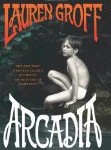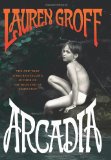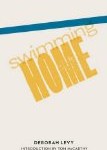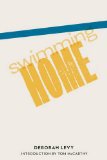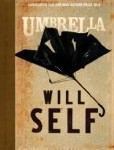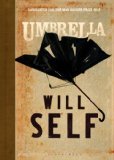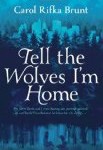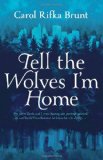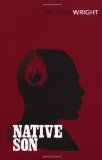Five words from the blurb: commune, mansion, utopian, idealists, dream
On the surface Arcadia is about life in an American commune during the 1970s, but on completion I realised it is about much more than that. This book questions our priorities – the way we choose to live our lives and how technology can be both a positive and a negative for society.
The book begins with the birth of Bit (a nickname given to him because of his small size) and follows him through his childhood in the commune. His happy life in the crumbling mansion they inhabit is marred only slightly by the behaviour of the adults around him. In the second half of the book we see his adult life, away from his shelter of the isolated community. It is only with the benefit of hindsight that Bit realises the problems of commune life were far greater than he was aware.
The writing was beautiful, with quotable passages scattered throughout:
Childhood is such a delicate tissue; what they had done this morning could snag somewhere in the little ones, make a dull, small pain that will circle back again and again, and hurt them in small ways for the rest of their lives.
Groff’s writing has improved since The Monstors of Templeton, but although the two books are different in terms of style and subject matter, Arcadia retains some of the fairytale-like properties of her debut novel. There is a lightness to her writing that makes the images jump off the page and I love her descriptions of the natural world. She is an author whose words need to be savoured slowly as it requires concentration to fully appreciate this novel.
The only reason I didn’t award more stars is because Bit’s narration was distant and I felt as though he was observing life instead of taking part in it. I’m sure this style was deliberate, but it meant I wasn’t emotionally invested in any of the characters. I also found that most of the peripheral characters weren’t fully developed and many of them were little more than random names to me.
These are minor complaints though. Arcadia is a wonderfully original take on the utopian novel and I loved the way it combined so many different elements of our culture. I can see it becoming a modern classic.

.
The thoughts of other bloggers:
Lauren Groff not only manages to cover fifty years in less than three hundred pages, she manages to do it while also playing with genre and exploring the nature of community and freedom. Nomadreader
There were moments of great writing and good storytelling but not enough to sustain my interest in the book… Kim Herrington, Goodreads Reviewer
(Note: blog reviewers were so overwhelmingly positive that I had to dig deep to find a negative opinion of Arcadia)
Reading this book, I felt the tug on my English-major soul to write a paper, to explicate metaphors, to read all the many literary works mentioned that have somehow escaped me so far. This is a book for people who love books. Reading Rock Books
